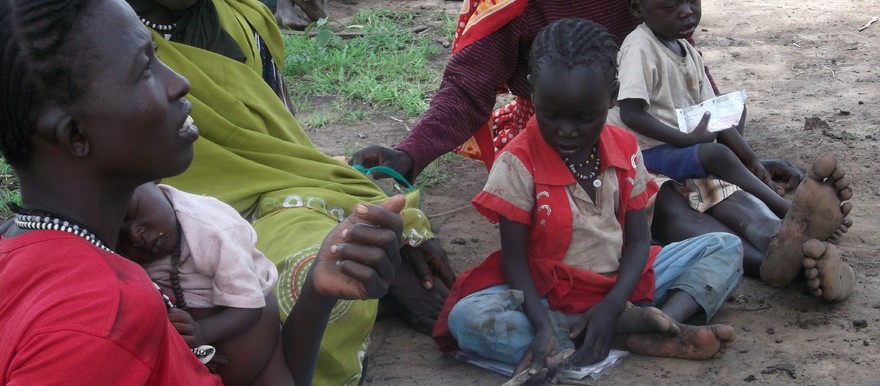Refugees arriving to Doro Camp from Baldogo in Blue Nile received no help on the way from the UN or international organizations. Mariam Hassan, holding a malnourished child and a bag of ‘plumpy nut’ rations, says that she walked seven days to reach this refugee camp in Maban County of South Sudan.
Women in the camp who arrived recently from Baldogo estimated that they came in a group of several thousand. ‘We were tired. We had our belongings and the children with us. We were walking in weather like this,’ said Samaya Ramadan, who arrived to Doro 17 days ago.
The region’s first heavy rains have begun, swelling seasonal rivers and sinking vehicles into mud on the rural tracks. The only gravel road in Maban County runs east-west rather than north-south from Blue Nile.
One of the Baldogo community’s leaders, Ramadan Mohamad Gadama said that he had arrived 26 days ago in a group of 134 families after 6 days of travel.
Another 14 families from the Baldogo area arrived yesterday, said the community leader. The refugees had passed through Dondoro and Magaja before reaching territory held by the Sudan People’s Liberation Army (North).
When they arrived at the Guffa border point they traveled in wagons pulled by tractors to reach Doro. They paid 600 pounds per tractor.
‘They were on the road for ten days,’ said Ramadan. ‘As of now there are still some people who are en route – they didn’t yet arrive. Those who are old, we sent back donkeys for them.’ He noted that no children had died on the way but that they arrived in poor condition.
Jideya, a mother from Baldogo, explained why she had left her home behind: ‘There were warplanes overhead, we had nothing to eat, and the children were sick.’
‘The people remaining in Baldogo say that there is bombardment there, and there’s nothing, there’s no food,’ noted Mariam Hassan.
The newly arrived refugees want help with food and schools for their children, according to Samaya Ramadan. ‘We are staying in the mud here’, said Ramadan Mohamed, adding that the aid organizations had not given them any plastic sheets to shelter them from the rain.




